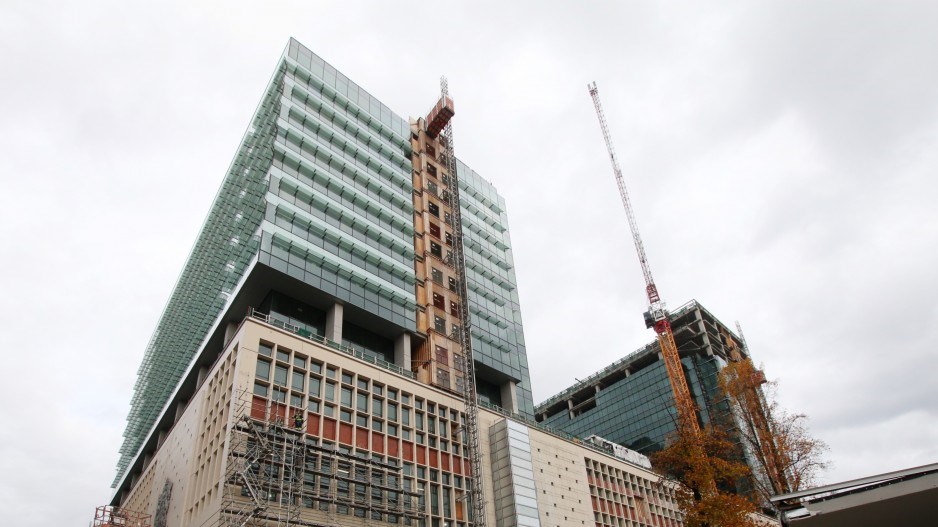Since the second half of 2022, tens of thousands of North American high-tech workers have been laid off in what may have been the largest tech sector downsizing since the 2009 recession.
But those layoffs have coincided with baby boomer retirements – the biggest wave of retirements ever seen – meaning some job losses have been absorbed by a tight labour market. It could reach a saturation point, however, if the layoffs continue.
“What we have seen is that the tech layoff activity in the past few months is definitely not slowing down,” said Nicole Davidson, CEO and founder of Beacon HR, a recruiting firm specializing in high-tech workers.
There are a lot more people looking for work in the tech sector today than there was a year ago, she said.
“We are still seeing, in the last six months, a higher volume of job applicants, especially those which post roles as remote first,” she said. “I think that tells us there are more available workers than there were a year ago.”
The big American tech giants – Amazon.com Inc., Meta Platforms Inc., Alphabet Inc. – have announced tens of thousands of layoffs worldwide over the past nine months. Given that Vancouver is sometimes described as Silicon Valley North, it is presumed at least some of those job cuts would have occurred in B.C., though it is hard to tell, since these companies typically don’t specify where layoffs occur.
Locally, B.C. companies such as Absolute Software Corp., Hootsuite Inc., Thinkific Labs Inc., Zymeworks Inc. and Unbounce Marketing Solutions Inc. have announced hundreds of job cuts so far this year, and at the end of March, California-based Electronic Arts Inc. – which in the past has employed roughly 1,200 people at its Burnaby campus – announced it would lay off 700 workers, though it didn’t say where the cuts would occur.
One may have to go back to the recession of 2009 to match the level of layoffs currently occurring in the North American high-tech sector. But the fact that B.C.’s unemployment rate remains low suggests a tight labour market here has been absorbing some of these job losses.
“It’s definitely been the largest layoff cycle in a long time,” said Ilya Brotzky, CEO of tech recruitment firm VanHack. “That being said… it was so hot that a lot of the talent’s been absorbed. Either they started their own companies or they’ve been hired somewhere else.”
Nathan Wawruck, vice-president of permanent placements for recruitment firm Robert Half Canada Inc., agrees. Retiring baby boomers are creating enough vacancies that laid-off tech workers appear to be finding other jobs relatively quickly, though they may not have as much leverage for things like pay and perks as they did a year ago.
“Every single month, thousands, if not tens of thousands, of baby boomers are exiting the workforce, and they’re leaving all kinds of gaps,” Wawruck said. “Any of those people who want to be back to work, they can pretty much get back to work as quickly as they want. Some of them voluntarily take a few weeks off, but then as soon as they update their LinkedIn… they’ll have interviews within hours, if not days.”
Typically, high-tech companies that need to let go of staff don’t cut from their core engineering team. Instead, jobs in areas such as marketing and customer service are targeted first. However, Davidson said there has recently been a worrisome trend of engineers also losing their jobs.
“The canary in the coal mine for me was a few months ago, when we started seeing companies start to lay off software engineers,” Davidson said. “In any downsizing activity we’ve seen in B.C. recently, everyone has tried so hard to hang onto their software engineers because it’s been such a tight market for great candidates there. So that’s been a really interesting shift, over the last few months, seeing companies start to reduce their software engineering and development teams.”
She said certain subsectors are still hiring, notably fintech and cleantech.
One trend Davidson has noted is the willingness of high-tech workers – who absconded city centres for remote work in suburbia and beyond – to return to the office, at least part time.
“We’re noticing a shift in the openness of employees to come back and work in [the] office maybe a couple a month or a couple of days a week,” Davidson said. “The shift I’m seeing is actually people willing to think about coming back into the city centres and spending more time in office.”






